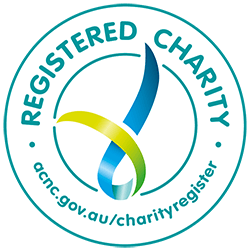Are you aware of the new Support at Home act that introduces a Code of Conduct for Aged Care? This Code is not just a list of guidelines; it’s a set of eight obligations that every approved provider, governing person, and aged care worker must strictly adhere to. These obligations are the cornerstone to providing safe, respectful, and quality care to every consumer.
Now, a quick question: Do you think this Code applies only to aged care providers? If you do, think again! The Code extends to their workers and governing persons too. In fact, approved providers are entrusted with the responsibility of ensuring their workers and governing persons are complying with the Code.
Let’s take a look at these obligations:
- I must act with respect for people’s rights to freedom of expression, self-determination and decision making in accordance with applicable laws and conventions.
- I must act in a way that treats people with dignity and respect and values their diversity.
- I must act with respect for the privacy of people.
- I must provide care, supports and services in a safe and competent manner, with care and skill.
- I must act with integrity, honesty, and transparency.
- I must promptly take steps to raise and act on concerns about matters that may impact the quality and safety of care, supports and services.
- I must provide care, supports and services free from all forms of violence, discrimination, exploitation, neglect, abuse, and sexual misconduct.
- I must take all reasonable steps to prevent and respond to all forms of violence, discrimination, exploitation, neglect, abuse, and sexual misconduct.
The Commission has issued a Code of Conduct for Aged Care (Notice) to identify non-compliant behaviours with the Code. This includes:
- complaints and feedback;
- reportable incident notifications under the Serious Incident Response Scheme;
- interviews with consumers and families;
- documents or information provided about compliance with the Code;
- notifications of material changes for aged care providers;
- financial reports and Annual Prudential Compliance Statements;
- performance assessments against the Aged Care Quality Standards;
- investigations;
- media reports; and
- referrals from other regulators (e.g. NDIS Quality and Safeguards Commission or Australia Health Practitioner Regulation Agency).
Let’s explore the Code’s main focus, which is ensuring consumers are treated in line with their rights. This means that aged care workers should not infringe on a consumer’s right to expression, support them in determining their lifestyle and choices, and assist them in decision-making.
How can you, as a service provider, facilitate a consumer’s right to expression while also ensuring it does not negatively impact others?
As service providers working with Carers WA, our key goal is to understand and uphold these obligations to provide the highest quality care to our consumers. Let’s have a conversation. Share your thoughts on how you’re implementing these obligations in your daily operations or schedule a session with our Carer Wellness at Home team for more information.
To enquire more about this service, contact wellnessprogram@carerswa.asn.au or 1300 227 377. Stay tuned for more updates on the aged care reform, by visiting our Aged Care Reform Information page, here.












